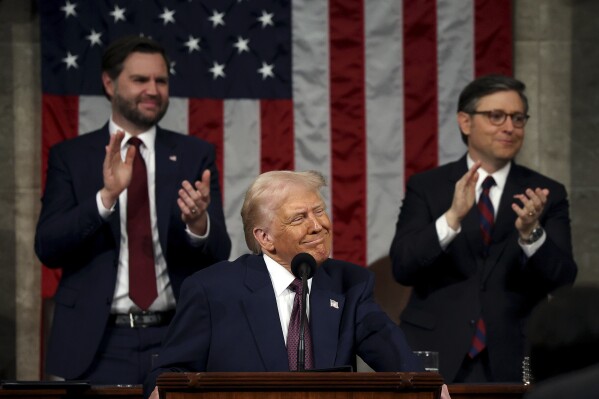Trump and Tariff Diplomacy: Colombia, Mexico and Canada
As President Donald Trump embarks on his second term, his aggressive use of tariffs as a diplomatic and economic tool has sparked tensions with key North American trade partners, particularly Canada, Mexico, and Colombia. How will these new trade policies reshape international relations and economic stability in the region?
UNITED STATES
Zlata Drazdova
3/4/20253 min read


On 4 March 2025, President Donald Trump addressed a joint session of Congress, highlighting his initial accomplishments in his new presidential term. He also confirmed that taxes are on the horizon for all countries that have been taxing American-made goods.
Beginning with neighboring countries, Donald Trump has recently imposed tariffs on imports from Mexico and Canada. Key factors behind these tariffs include concerns about border security, the illicit flow of fentanyl into America, and addressing trade imbalances. The president views tariffs as a tool to bring jobs back to the United States and boost domestic manufacturing, as well as raising tax revenue and stimulating the economy. Even though Trump acknowledged the possibility of disruption, he claimed the tariffs are necessary. "Tariffs are not just about protecting American jobs, they're about protecting the soul of our country," Trump said. "Tariffs are about making America rich again and making America great again, and it's happening, and it will happen rather quickly. There will be a little disturbance, but we're ok with that. It won't be much." Trump has introduced 25% tariffs on goods from both Canada and Mexico, with the exception of Canadian energy resources, which will have a lower 10% tariff.
Trump’s tariffs and statement about making Canada the 51st US state were met with offense and indignation among Canadians and their government. In response to Trump's political messaging, many Canadians have initiated a consumer boycott of US products and services. Moreover, Prime Minister Justin Trudeau criticised Donald Trump's sweeping tariffs on Canada, calling it a "very dumb thing to do" and vowed to conduct a "relentless fight" to protect its economy. He pointed out that Trump has launched a trade war against Canada, but they are ready and developing plans to challenge the US tariffs. Canada has also introduced retaliatory tariffs on US exports and warned that a trade war would be costly for both countries.
In contrast, Mexico approached the situation differently. After focusing on reducing the number of illegal immigrants and fentanyl coming into the United States, Mexican President Claudia Sheinbaum had a call with Donald Trump. Following this, the US President announced a waiver until April 2 on tariffs for all Mexican imports covered by the US-Mexico-Canada Trade Agreement (USMCA). He expressed warm words for Sheinbaum, saying on his social media, Truth Social "I did this as an accommodation, and out of respect for President Sheinbaum. Our relationship has been a very good one and we are working hard, together, on the border." Claudia Sheinbaum, in turn, promised that the government would work on security and migration issues as Washington temporarily eased tariffs and added that the two countries would also work to curb the arrival of guns from the US in Mexico. Subsequently, Donald Trump has temporarily paused tariffs on goods from Mexico and Canada covered under the USMCA trade agreement. This period provides both countries with time until April 2 to negotiate key issues about border security and trade partnerships.
Colombia also was at risk of facing 25% tariffs after its president, Gustavo Petro, barred two US military planes from landing in the country; the planes were carrying deported migrants back home. After refusal, Trump announced that a 25% tariff would be imposed immediately on all goods coming into the US from Colombia. The tariffs were set to escalate to 50% in a week if no resolution was reached. However, in the wake of the tariff threat, Colombian President Gustavo Petro had to back down. Within two days, deportation flights had resumed, with migrants transported on board Colombian Air Force planes. The Trump administration claimed it as a diplomatic victory. "Today's events make clear to the world that America is respected again," White House Press Secretary Karoline Leavitt said in a statement. Colombia managed to avoid the tariffs and remained uninvolved in the broader tensions between the United States, Canada and Mexico.
Nevertheless, the tariffs imposed on Canada and Mexico sent shockwaves through the global economy, causing concern among countries partnering with the US about future cooperation and economic stability. The second recent suspension of US tariffs has further exacerbated uncertainty in the global market, leading to confusion in the business environment and raising questions about the strategy behind Trump's tactics.


